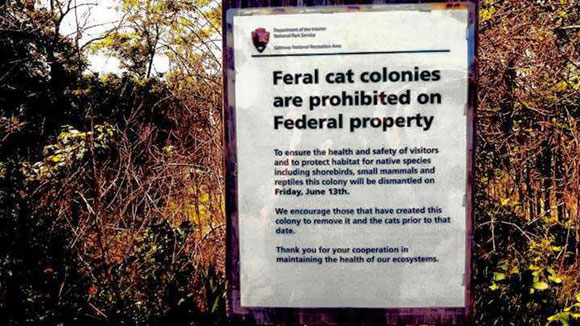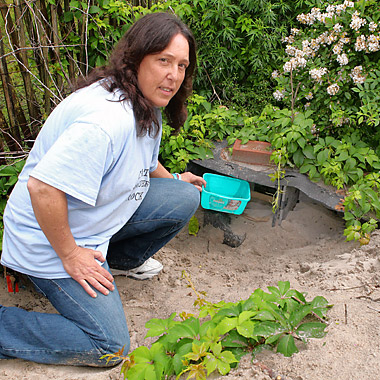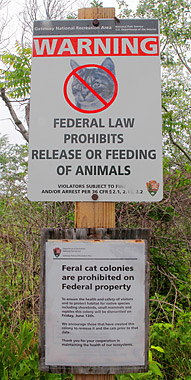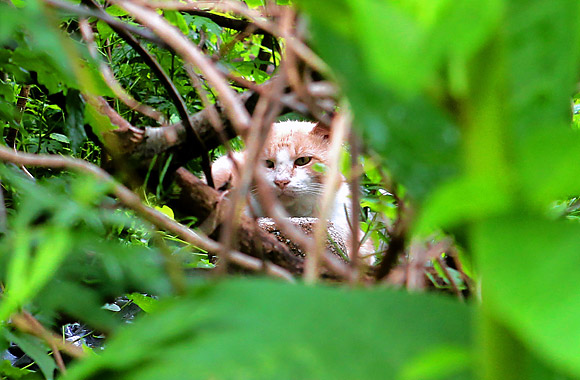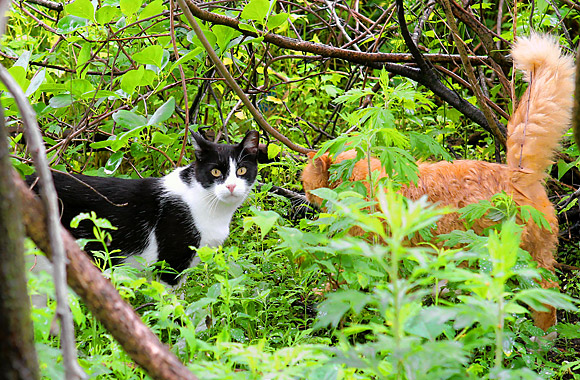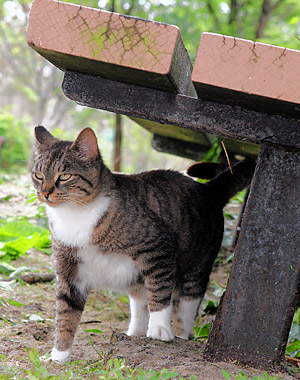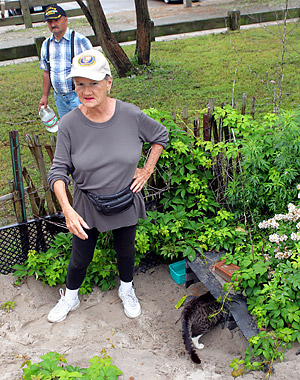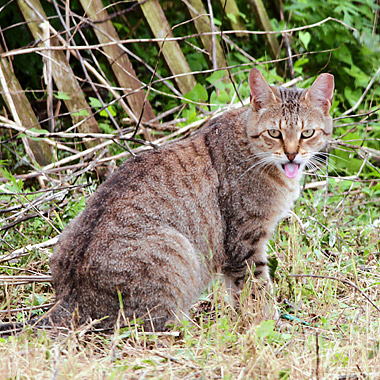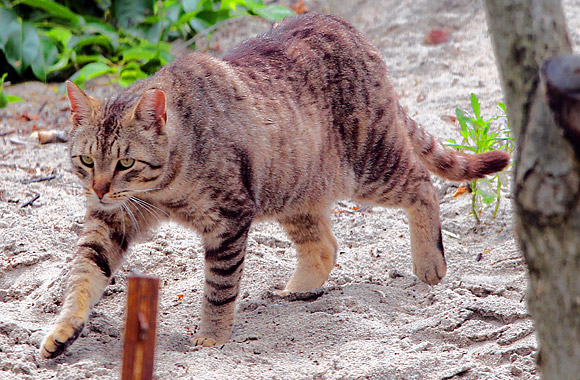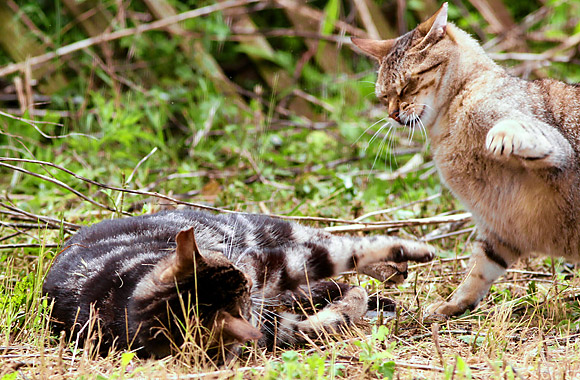First they came for the kitties.
A group of wild cats living in shanty town in Plumb Beach faces eviction by the National Park Service, which says the cats pose a danger to native species.
But the cats’ human caretakers — who built them an elaborate wood-and-cardboard habitat in the woods and feed them daily — argue that the feral felines are doing more good than harm.
“Do you know there’s a rat problem in New York City? You know where there’s no rat problem? Plumb Beach,” said Janelle Barabash of Midwood, who has been caring for them for months along with several other cat fanciers.
The colony consists of 33 cats living in a few dozen shelter and feeding structures organized into six cat condo clusters. It has been a haven for wild and abandoned cats for 11 years, according to Nancy Rogers, another caretaker.
The National Park Service, which has jurisdiction over the beach, said the maleficent mousers threaten area wildlife.
“For a national park to have any exotic species that could a pose threat to native wildlife is in direct conflict with national laws,” said Doug Adamo, a biologist with the federal agency. “It is conservatively estimated that 1 billion birds killed by domestic cats in U.S. alone.”
Adamo did not have numbers specific to Brooklyn or estimates of the body count Plumb Beach’s pugnacious pussycats may have racked up over the last decade, but recent studies have shown that even domestic house cats allowed to roam at night actually hunt and kill far more wildlife than previously estimated.
Local birdwatchers favor moving the cats to protect the local wildlife — especially since Plumb Beach is such a rare and specialized habitat.
“I would hope that the colony caretakers and the Park Service could work out a plan to relocate the cats that live currently at Plumb Beach to existent colonies that are not in such an environmentally sensitive area,” said Rob Bate, a member of the Brooklyn Bird Club. “The littoral zone and saltwater marshes along coasts are severely diminished habitats worldwide and deserve special consideration, protection and attention.”
A Parks Service spokesman said the agency discovered the shanty town last month, but cat advocates say the feds have known about the feline favela for a long time.
When the Army Corps of Engineers was rebuilding the beach after Hurricane Sandy, the Corps gave the head caretaker a key to the fenced-off area. Indeed no disaster seems to have stopped the caretakers.
“When the snow was waist-high this winter, we took a $120 cab to come feed the cats,” said Carolyn Euvino, a Bay Ridge retiree and the chief kitty caretakers who pays for the felines’ food and shots. “I’m a ‘crazy cat lady.’ ”
All 33 animals are fixed and up-to-date on their shots, said Rogers — a veterinary technician who volunteers for trap-and-release organizations.
The effort is a labor of love, but for others, it is much more.
“It’s like therapy for me — I was in Vietnam,” said Ridgeite Joe Destefan. “I still go to group [therapy], but this helps a lot.”
But a sign recently posted near the colony at a parking lot along the Belt Parkway stated that the feds would claw back the land on June 13 by “dismantling” the kitties’ shanties. The Park Service plans to capture the cats using humane traps and then demolish the wood-and-cardboard shelters, Adamo said.
After wrangling with the caretakers, the feds extended the deadline for a week as a show of good faith — it will also help the caretakers transport their charges to nearby shelters while the cats find a permanent home, Adamo said.
But the cats’ caretakers say the task isn’t that easy, and a stint in a shelter will be a death sentence.
“They get five days before they put them down,” said Rogers.
Most of the felines are “true ferals” — meaning they avoid people at all costs — and only a handful are adoptable, she said.
Moreover, there is no way to trap all 33 cats before the Parks Service’s deadline, caretakers said.
“It took a year and a half to trap and spay or neuter the population,” said Rogers. “I don’t know how Doug [Adamo] thinks we’ll do this in eight days.”
